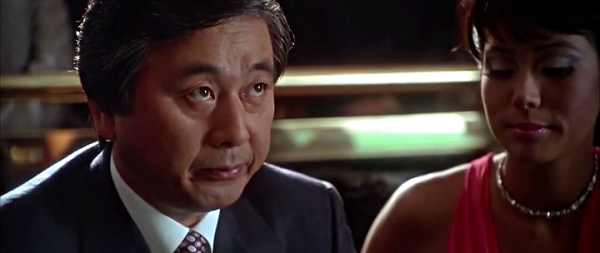It’s better to be good than to hope to be lucky

I have to admit that the latest #Slatepitch defending Stephen Breyer’s grossly irresponsible decision to put his vanity above the public interest is at least original. We shouldn’t mind that Breyer is risking being replaced by a Republican when he can certainly be replaced by a Democratic president because...Learned Hand lived longer than Wiley Rutledge:
The year was 1943, and the potential nominee was Judge Learned Hand of the Second Circuit Court of Appeals. While Hand is little known to the general public today, he may be the one appellate judge every first year law student remembers, and not just because of his unforgettable name. His opinions are still the staple of law school casebooks, in subjects as diverse as constitutional law, contracts, torts, copyright, and admiralty. He is often described as the best appellate court judge of the 20th century.
When Justice James Byrnes stepped down from the court to aid President Franklin Roosevelt’s World War II effort, Hand was an obvious candidate to succeed him. Justice Felix Frankfurter, among many others, lobbied Roosevelt for his appointment.
But Hand was 71. When Attorney General Francis Biddle met with Roosevelt to discuss the potential candidates, they both dismissed Hand, despite his eminence and achievements. Biddle later reported they had agreed Hand was simply too “old.” Attentive to the future and the opportunity to shape the court for many years ahead, Roosevelt chose a nominee more than a generation younger than Hand. And, so, Wiley Rutledge, age 48, joined the court.
Justice Rutledge, Roosevelt’s last appointment to the court, had a distinguished tenure, and he was a role model for one of his clerks, future Justice John Paul Stephens [sic].
But that tenure was short. After six years on the court, Rutledge died of a stroke in 1949, at the age of 55.
By that time, Hand, 77, was considered clearly too old for even consideration. President Harry Truman nominated Judge Sherman Minton, age 58, to fill the seat.
But Minton’s tenure was also abbreviated. He retired in 1956 at age 65 because of ill health, leaving Republican President Dwight Eisenhower to nominate the successor to Rutledge and Minton.
Long after Rutledge had passed away and years after Minton retired, after Roosevelt, Truman, and Eisenhower each had the opportunity to fill the Supreme Court seat that Hand had been denied, Hand continued—on, on, and on. He authored the influential books The Spirit of Liberty (1952) and The Bill of Rights (1958), and he wrote countless additional important Second Circuit decisions. Hand died in 1961 at age 89, the year President John Kennedy took office. Up to his final year—some 18 years after he had been denied a Supreme Court nomination because of his age—Hand remained active on the Second Circuit, producing classic opinions on topics ranging from tax law to labor law, immigration law, and tort law.
[…]
Finally, if Justice Breyer decides not to retire, those worried about the future of the liberal wing of the court may take comfort in the Hand story. News accounts report that Justice Breyer is very attentive to his health and that he has a good exercise regime. At 82, he may have many years on the court ahead.
Who knows? 82 may be the new 71.
I’m not sure why I’m supposed to be thrilled that Breyer could be on the Court for many more years given that 1)almost anybody Biden might appoint would be an improvement and 2)this doesn’t mitigate the risk that he will be replaced by a Republican president, but anyway.
It is trivially true that probabilities are not certainties. It is not impossible for a 71-year-old to live longer than a 49-year-old. But that’s not how to bet. It is also trivially true that our current Supreme Court predicament involves some bad luck. William Rehnquist made (from his perspective) the exact same reckless gamble Ruth Bader Ginsburg did, but the Electoral College didn’t quite malfunction enough to make him pay for it. Scalia could have died unexpectedly in 2013 rather than 2016. Ginsburg could have made it another four months. Could have, but didn’t. We cannot know to an absolute certainty that all six Republican nominees to the Supreme Court won’t die in a tragic blimp accident tomorrow. Putting your life savings on a roulette spin could turn out to be a better investment than buying an S&P 500 index fund.
But the fact that history is contingent is no excuse for Breyer to act irresponsibly. We know he can be replaced by a Democratic president now; if keeps rolling the dice maybe he will and maybe he won’t. But in the end, the House usually wins, and the right thing for Breyer to do is very obviously to retire contingent on a replacement being confirmed now.


